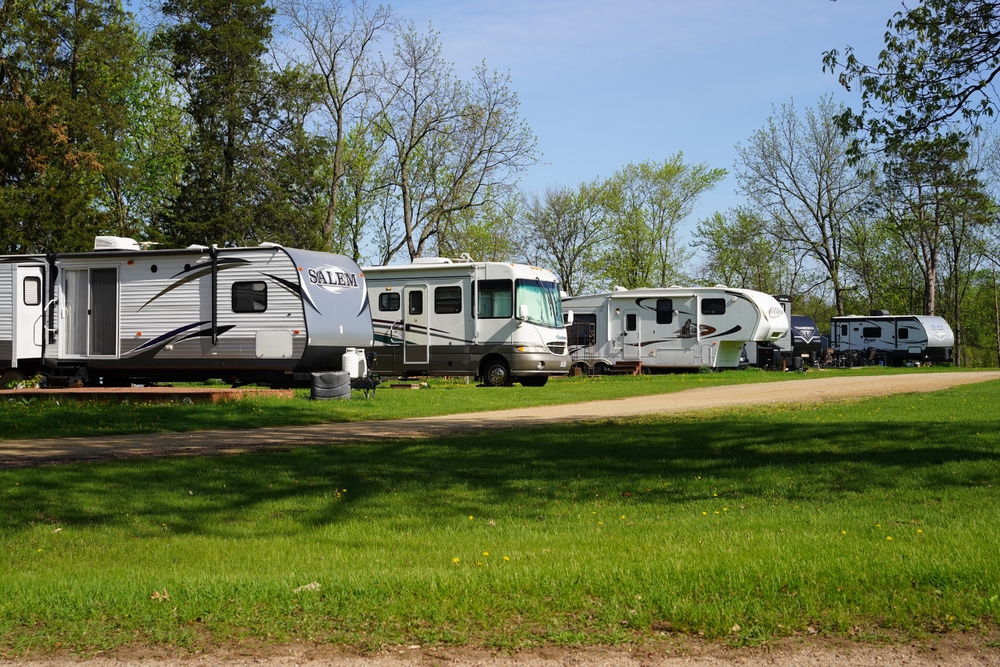RV parks are experiencing rapid growth as more travelers embrace the freedom of RV living. This surge in demand has made RV parks highly attractive investment opportunities. However, securing RV park loans can be a complex process for many investors. Those who understand current lending practices are better equipped to navigate financing options and make informed investment decisions.
This article explores key trends, challenges, and opportunities in the RV Park loans market. It serves as a valuable guide for investors looking to buy a property, expand their business, or refinance existing loans.
The Growing Popularity of RV Parks
RV travel experiences increased popularity during recent times. Retirees, remote workers alongside young families have chosen to adopt this lifestyle pattern. A record number of RV ownership exists due to data collected by RV Industry Association (RVIA). The market demand for excellent RV parks has reached unprecedented levels.
Investors have become drawn to this rising trend. Operating RV parks with proper management produces consistent revenue streams which makes the business venture attractive. The process to obtain RV Park Loans for real estate purposes differs from standard commercial real estate financing methods.
Types of RV Park Loans
Lenders offer different financing options for RV park loans in Florida. Each has its own terms, rates, and requirements. So, understanding these options will help you determine what is the best loan to start an RV park?
1. Traditional Bank Loans
Businesses with strong financial success can obtain loans through banking institutions. The loans from banks offer both affordable interest and demanding conditions for loan approval. Moreover, banks demand borrowers to show good credit profiles together with proven business revenue streams and sizable initial cash contributions. Besides, the process of approving a bank loan extends beyond reasonable waiting periods which creates difficulties for businesses that require urgent financial resources.
2. SBA Loans
Small Business Administration (SBA) provides loans to businesses with rates that compete with the market alongside extended repayment options available. Both SBA 7(a) and SBA 504 loans serve as frequent financing options for RV park development. RV Park financing through these loans demands substantial paperwork and triggers an extensive approval procedure even though they appear appealing.
3. Private Lender Loans
RV Park Loans from private lenders including Loan Locker offer flexible funding options to potential borrowers. The loan solution provides effective financing for investors seeking immediate loan application approvals together with specific agreement terms or dealing with unique financial profiles. Private loan companies evaluate asset worth and profitability instead of relying on traditional credit scoring methods.
4. Seller Financing
The sellers of RV parks sometimes accept financial responsibility for buying the park. The arrangement benefits each side of the deal particularly because traditional loan providers tend to hesitate. The terms for seller financing differ from case to case so investors need to reach wise agreement on the conditions.
5. Bridge Loans
The short-term financing solution that goes by the name of bridge loan provides immediate funds for a specific time period. Property acquisition during the wait for long-term financing becomes possible through this instrument. Furthermore, Bridge loans from private lenders usually allow fast approval processes together with adjustable terms.
Challenges in Securing RV Park Loans

Image Source: Shutterstock Copyright Free Image.
While the RV park industry is thriving, getting a loan isn’t always simple. So, here are some common challenges investors face when looking for RV park loans near me.
1. Property Classification Issues
Lenders name RV parks as specialty properties when classifying properties. RV Park Loans for real estate obtains more challenging financing procedures than traditional commercial property loans do. The unfamiliarity of certain banks regarding the RV Park business model leads to reluctance in offering loans.
2. Seasonal Revenue Fluctuations
RV parks produce their main income during specific times of the year mainly when operating in colder conditions. Additionally, loan approval processes become more challenging while the costs for financing increase when lenders evaluate this element as a financial risk. Business plans along with reliable cash stream operation help decrease lender concerns.
3. High Initial Costs
RV park developments as well as acquisitions demand substantial funds at the beginning stage. Each aspect of land purchase and construction costs and utility development along with amenity provisions requires substantial investment. The lenders need proof that the park will earn enough financial revenue to pay all expenses and loan obligations.
4. Strict Lending Requirements
Standard banking institutions set their requirements as high credit histories coupled with detailed documentation collection and substantial deposit requirements. The demanding standards to fulfill seem hard to achieve particularly for investors who are new to the game.
5. Zoning and Compliance Issues
Furthermore, RV parks need to satisfy both zoning standards and local health rules and environmental guidelines. The process of acquiring permits alongside funding becomes restrictive due to zoning rules applied to certain areas that prevent RV park development.
Opportunities in the RV Park Loans Market
Despite these challenges, the RV park industry presents exciting opportunities. Lenders and investors are adapting to the evolving market.
1. Rising Demand for RV Park Loans and Investments
An increasing number of travelers adopting RV travel practices leads to rising demands for well-updated parks. A substantial amount of cash flow together with enhanced occupancy rates becomes attainable when investors focus on delivering premium facility options.
2. Flexible Financing Options
Private lenders are stepping up to meet the demand for RV park financing. Companies like Loan Locker offer fast, flexible RV Park Loans tailored to the needs of investors. These loans help buyers secure properties and grow their businesses without the hurdles of traditional banks.
3. Higher Returns on Investment
RV parks tend to generate better financial returns as compared to other segments within the real estate sector. Parks that receive upgrades in facilities and marketing advancements combined with strategic development projects will experience substantial revenue increase.
4. Expansion and Upgrades
RV park owners who already operate facilities can utilize financing tools to enlarge their properties. Moreover, they can provide upscale services together with improving their park infrastructure. RV parks receive increased profitability through modern amenities including Wi-Fi along with laundry facilities and recreational spaces which draw more visitors to the park.
5. Emerging Markets and Niche Segments
Lastly, a growing number of RV park concepts have become increasingly popular. These concepts include luxury resorts for RVs combined with environmentally friendly themes and spaces designed for extended stays. Fund investors entering special market segments establish distinct value propositions that enable them to attract different sets of customers.
How to Secure Right RV Park Loans
Getting the right loan starts with preparation. So, here are steps to improve your chances of approval:
1. Have a Solid Business Plan for RV Park Loans
Firstly, the detailed nature of your business plan proves to lenders that you have a serious approach to your investment. The business plan must demonstrate financial predictions with marketing approaches plus operational plans.
2. Improve Your Credit Profile
Secondly, private lenders will offer flexible options but better financing conditions exist for individuals with good credit scores. All existing debts should be paid off while you should keep detailed financial records.
3. Show Stable Revenue or Potential
Besides, you must demonstrate to lenders that your RV park has sufficient sources of income to handle expense costs. In case of an existing park acquisition provide complete financial report records. A new park development should demonstrate both market need and the prospect of expansion when requesting funding.
4. Work with an Experienced Lender for RV Park Loans
Moreover, the selection of a suitable lending institution genuinely changes everything. The team of Loan Locker works with RV Park Loans by providing expedited approval processes together with personalized financing solutions.
5. Prepare a Down Payment
Lastly, a financial contribution apart from the requested loan amount is necessary to obtain most loans. Tourists can obtain loans at varying amounts determined by the loan type and lender conditions. A down payment amounting to 20-30% ensures better approval prospects for your application.
Maximizing Your Investment with RV Park Loans
The RV park market is experiencing quick expansion which leads to available investment opportunities for investors. The learning process helps simplify your journey to obtain financing resources.
Private lenders like Loan Locker offer flexible and fast RV Park Loans solutions tailored to investors. By choosing the right loan, planning ahead, and working with experienced lenders, you can successfully invest in this thriving market.
If you’re ready to finance an RV park, reach out to Loan Locker today. We can guide you through the process and help you secure the funding you need.

